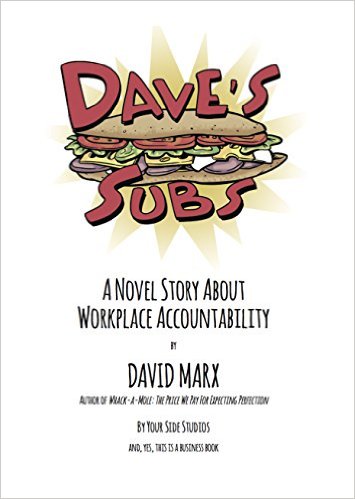Get report samples
A valid email is required in order to receive the samples.
A valid email is required in order to receive the samples.
SCANNER FREEMONT / Data Analyst
Freemont is responsible for the digital conversion of survey responses while adhering to strict quality standards set forth by its managers. Freemont began its career at TruScore in 1996 as a Data Analyst and quickly became pivotal to TruScore's success. As the years passed, Freemont has slowly matured into part-time Data Analyst while also holding many positions in the work environment including On The Floor, On The Empty Desk, and Hold The Door (AKA Hodor).
RON SACCHI / Master Coach
A former Operations Manager in the High Tech Industry, Ron Sacchi brings decades of leadership and management experience to the organizational development and the executive coaching arena. An energetic thought-leader with a track record of success in all areas of Human Capital development, he has consulted and coached managers in start-ups, joint-ventures, high tech, pharmaceuticals, and media. Because of his business acumen and creative approaches to behavioral change, he is respected in the HR community specifically for the ability to direct, motivate, influence and inspire leaders to improve performance.
Holding an MBA from Saint Mary’s College, Mr. Sacchi is also licensed in various management, leadership and psychological profiling tools.
PAUL CONNOLLY, PH.D. / Assessment Expert
Dr. Connolly’s major expertise includes organizational measurement strategies, survey design and questionnaire development, 360-degree feedback, leadership assessment and leadership development. He has extensive training and experience in psychometrics. He co-authored many 360-feedback surveys with Dr. Clark Wilson, one of the originators of the 360-feedback concept. He has also facilitated the development of surveys with well-known sports performance psychologist Dr. Jim Loehr who founded the Human Performance Institute. He has worked to create assessments with many thought leaders in the Human Resources field.
Dr. Connolly is the author or co-author of seven books and many articles. He is a licensed psychologist and member of the Association for Psychological Science and Society of Industrial and Organizational Psychology. He is a graduate of Holy Cross College and Fordham University, where he received his M.A. and Ph.D. in general psychology.
DR CHUCH MELTZER / Master Coach
Dr. Chuck Meltzer is a Master Coach and President of the SynTECGroup, an organizational development consulting firm. As an executive coach, he draws on his training at a doctoral level in psychology, direct senior management experience and management consulting with a wide cross section of industries. He has developed an extensive series of strategies to assist leaders in creating organizational wide and personal change. Dr. Meltzer has a decade of direct senior management experience and 20 years’ experience functioning within his consulting and coaching practice. His coaching approach is solution focused and time framed. Based on determined goals, a personally customized approach to the process has enabled his clients to realize sustainable change in a manner that allows them to enhance their effectiveness and success as leaders within their organization.
Dr. Meltzer is certified and a master trainer in several coaching assessment tools that he employs within his practice.
ERIN HIRSCHLAND / Master Coach
Erin is an organization development expert with nearly two decades experience serving organizations of all sizes across industries on a broad range of issues. Working with leadership teams, she helps articulate an actionable vision and corresponding values, connecting these to organizational strategy, execution and results. Her tools of choice include senior team retreats, one-on-one executive coaching and proven survey and related instruments.
Erin’s additional expertise includes designing employee selection systems, developing performance management tools that increase performance across the organization over time and employee and customer experience metrics. An effective facilitator and coach, Erin works with leaders and their teams to build trust, commitment and results.
She holds a Bachelor of Arts degree in Psychology from the University of California, Santa Barbara and a Master of Arts degree in Industrial/Organizational Psychology from the University of Colorado.
SONYA D HAMILTON / Senior Assessment Consultant
Sonya is a Senior Assessment Consultant at TruScore with over 24 years of experience designing and delivering 360 feedback solutions and providing 360-based coaching, training and interpretation.
Sonya has extensive experience working with Managers and Leaders, guiding them through the feedback and development journey and providing insights and direction to help maximize their impact within the organization. Sonya’s areas of expertise include 360-based coaching, 360 data analysis and interpretation, Train-the-Trainer certifications, facilitation, survey & questionnaire design, and the design and delivery of assessment programs.
Sonya has a Bachelor’s degree in psychology and a Master’s of Science degree in Industrial & Organization Psychology from Springfield College with a specialty in Counseling and Psychological Services. She is a Master Trainer for TruScore and the Clark Wilson Task Cycle surveys receiving a Certificate of Achievement in “How to Train a Trainer”. In addition, Sonya is certified to administer a variety of other psychometric instruments including employee engagement and organizational instruments as well as the line of Hogan Personality Assessments.
KAYLEY MOTZ / Assessment Advisor
Kayley draws on her extensive customer service background to provide clients with prompt, quality support. In her role as Assessment Advisor, Kayley works to ensure clients’ needs are being met. She assists in project set up and management, as well as processing and quality checking feedback reports. Kayley also aids in the execution of the day-to-day responsibilities of the production team, such as coaching session scheduling and tech support.
CRYSTAL HUGHES / Assessment Advisor
Crystal leverages her extensive background in Industrial-Organizational (I-O) psychology as she manages the day-to-day operational and tactical aspects of multiple and large scale projects for TruScore.
Crystal assists clients with setting up and managing feedback projects, and serves as the point of contact throughout the entire process. She quality checks feedback reports, and provides tech support when needed.
ELLIE SOLOMON / Assessment Advisor
Ellie manages project implementation for the entire 360 assessment feedback process and ensures that each client’s unique needs are met on time and in an efficient manner. Ellie consults with clients who use TruScore’s off-the-shelf Task Cycle® instruments as well as providing hosting solutions for clients using their own survey content, including custom processes and reports. She helps clients navigate through the TruScore® survey hosting software, having literally written the handbook that several clients are using.
She coordinates and implements all translation efforts, including soliciting bids, managing timelines, providing files to the translation companies, implementing translations for the web pages, and testing.
ULLA WESTERMANN / Software Engineer
Ulla uses her years of experience as a software engineer to maintain and add new features to TruScore's applications. She also helps with customizing feedback reports based on client needs.
HANK CURTIS / Business Development Manager
Hank manages and assists in the analyzing, planning, research, and development of TruScore’s objectives and strategic plans in order to achieve business opportunities, growth, and financial profitability.
Hank drives the expansion of TruScore’s direct sales, establishes relationships with TruScore’s clients, identifies clients, and keeps up-to-date on industry trends and client developments.
TAYLOR BRANTON / Bookkeeper
Taylor is responsible for managing payroll and employee fringe benefits programs, in addition to organizing company gatherings and outings. Taylor oversees day to day accounting needs as it relates to client invoicing, accounts payable, and general compliance requirements. She also has a hand in month, quarter, and year end reports and works closely with the CEO and CTO to furnish details necessary to make accurate business projections and decisions.
KURT BLAZEK / Design Director
Kurt uses a unique blend of strategic thinking with dynamic executions to create TruScore’s visual and interactive design. He is responsible for creating, evolving, and sustaining the company’s brand to internal and external stakeholders through multiple mediums. He oversees all of TruScore’s digital strategies, along with the implementation of social media tools and techniques.
Kurt leverages TruScore’s marketing and messaging information to identify, evaluate, and apply methods to maximize the effectiveness of the search campaigns across all of the major search engines. He tracks and measures the ROI of search engine rankings, direct print, and marketing websites.
JOSH SHEETS / Chief Operations Officer
Josh is responsible for all day-to-day aspects of managing the operations and various functional areas including business development, sales and marketing, client delivery, vendor relations, human resources, and IT.
Josh helps to ensure outstanding customer service, and the administration of long-term and day-to-day business processes that complement the delivery of high quality, innovative customer-focused survey tools, assessments and hosted survey offerings.
TOM KUHNE / Managing Partner and CTO
Tom joined TruScore in 1995 and has served in a number of roles, including Data Analyst, IS Manager, and VP & CIO. In his current role as Managing Partner and CTO, Tom is the driving force behind TruScore's technology vision for the present and the future. He manages all aspects of TruScore’s information systems, ensuring all systems meet the highest functionality and security standards.
Tom enjoys working hand in hand with clients and partners to make sure TruScore® delivers the technology and advancement that has become expected of it as a leader in the online assessment marketplace.
DEREK MURPHY / Chief Executive Officer
Derek joined TruScore in 1996 and has served in a number of roles, including Data Analyst, Operations Manager, and President & COO. In his current role as CEO, he is responsible for planning and implementing the strategic direction of the company. In addition, Derek is involved in product development and overseeing the day-to-day business operations for TruScore.
TruScore founder Dr. Daniel Booth, a pioneer in the field of assessment of leadership and management skills, served as a mentor to Derek for more than a decade. During this time, Derek became certified on TruScore’s full line of management and leadership assessments. He currently uses these skills to lead content debriefings with customers and partners on a regular basis.

A late bread delivery. A new driver. An improperly stocked bread rack. A first-time customer. An employee’s first foray into covering as manager. An instinctive reach. A failure to confirm. It was a series of mostly unremarkable events. No evil actor. No intention to harm. Yet a customer with celiac disease had to be hospitalized when she was accidentally served a sub with regular bread instead of the gluten-free roll she’d requested.
Milo, the manager who’d been absent when the mistake occurred, is tasked with figuring out how to make sure nothing like that ever happens again. And so he begins a journey into learning about workplace accountability. We follow along, happy it’s his problem and not ours.
This little book should be on every leader’s desk—not stuck under a pile of papers, but sitting on top, ready to be consulted every day. It’s well-written, filled with practical suggestions you can implement right away, and thought-provoking.
Corporate voice boils down to whether employees hold back important work-related information that could inform decisions and problem resolutions, or whether they experience the safety, confidence, and trust that encourages them to contribute their fullest. Employees in a culture of silence may perform their jobs, but they will do so as a matter of obedience or resignation. They don’t go out of their way to give their best efforts or to solve problems, even if they have good ideas, mainly because they don’t think leaders will listen to them or value them.
Employees in a culture of voice, on the other hand, contribute their fullest, resulting in open, honest, and healthy communication and innovative problem solving. They are willing to expand their efforts to meet organizations’ goals and advance business objectives beyond fulfilling the basic requirements of their jobs.

This is not one of those books you’ll read from cover to cover while sipping a cup of coffee with your feet up on your desk. It’s more of a textbook, or a workbook, for CEOs and their executive teams to work through issues involved in scaling up their businesses. The first chapter is an executive summary, and the author describes its fast pace and many lists as “drinking from a fire hose!” It’s intense, so keep both feet on the floor. The ideas in the rest of the book are served up in more bite-sized pieces, although it never really slows down.
Harnish describes the keys to scaling up as: attracting and keeping the right people; creating a truly differentiated strategy; driving flawless execution; and having plenty of cash to weather the storms. Accordingly, there are sections devoted to each of these topics. Each section has at least three chapters and numerous worksheets to be completed. I think, if you work your way through the book, you’ll be happy you did.

Herminia Ibarra is the director of a prestigious executive leadership program, and her new book is designed to help managers at all levels step up to leadership. Making small but crucial changes in your job, your networks, and yourself can lead to enhanced leadership opportunities. She bases the book on the “outsight” principle, which holds that the only way to think like a leader is to first act: to plunge yourself into new projects and activities, interact with very different kinds of people, and experiment with unfamiliar ways of getting things done. In other words, change happens from the outside, rather than from the inside out.

Stan Slap, management consultant and keynote speaker par excellence, has a new book. It’s called Under the Hood, and it’s about employee culture; specifically, how management objectives can be either supported or sabotaged by the employee culture. Slap’s definition of employee culture is: “Your employees’ shared beliefs about the rules of survival and emotional prosperity.” An employee culture exists to protect itself; it is an information-gathering organism, designed to assure its own survival.
Which means it is anti-change, because change—including positive change--could threaten its very survival. You, even as a first-level manager, are not part of the employee culture. Instead, you are the key influencer of the culture’s survival and emotional prosperity.

Chances are you’re one of the 15 million people who have read the original One Minute Manager published in 1982. It’s a small book that requires only about an hour to read and uses a parable to teach three crucial management skills (called “secrets”) that, once learned, will probably stick in your memory forever. So why revise such a valuable resource? I was curious, so I compared The New One Minute Manager with the original version.

Are you new to your job and feeling out of your depth and overwhelmed? If so, you probably have more to offer than you realize. In a rapidly changing world, being new, naïve, and even clueless can be an asset. According to author Liz Wiseman, the willingness to learn can be more valuable than mastery, and rookie smarts is often more beneficial to an organization than veteran comfort.
Wiseman doesn’t suggest that experience is a bad thing. Nobody wants their airline pilots, or their bridge builders, or their concert pianists to be rookies. But, while experience provides a distinct advantage in a stable field, it can actually impede progress in an unstable or rapidly evolving arena.

At social occasions I hear a similar complaint repeated over and over: “I’m too busy. I’ve got to find some way to cut down on some of my activities.” I recommend the new book Essentialism, by Greg McKeown, as a way to decide which activities to cut and which to keep.
According to McKeown, Essentialism is not about how to get more things done; it’s about how to get the right things done. It doesn’t mean just doing less. It’s about doing only what is essential so you can operate at your highest point of contribution.

by Alan Deutschman. (2010). New York: Portfolio/Penguin. 182 pages.
Reviewed by Diane Byington, Ph.D.
Deutschman starts out with a little-known story about Martin Luther King, Jr. In 1962, King was speaking at a gathering of the Southern Christian Leadership Conference and, in the middle of his speech, a white man jumped on the stage and punched him in the face several times so hard that he staggered backward and spun half around. He managed to turn back to face his assailant and then he dropped his arms, refusing to defend himself. The man was pulled away, but King insisted on talking to him privately, and he refused to press charges. King's speech at that meeting was on nonviolence, but his refusal to fight back inspired his followers far more than his eloquent words.
Deutschman's proposition is that we need to see our leaders "walking the walk" as well as "talking the talk" if we are going to be willing to follow them through difficult circumstances. As a journalist, he has a suitcase full of stories about leaders who successfully walked the walk, and as a result made significant changes in their environments. The stories were fun, and included tales that ranged from Eleanor Roosevelt to Jeff Bezos of Amazon, and a host of others. Reading these stories was the best part of the book.

by Al Watts. (2010). Minneapolis, MN: BRIO Press. 170 pages.
Reviewed by Diane Byington, Ph.D.
Reading this small book is like snuggling up with a friend next to a fire on a winter evening, sipping a glass of your favorite wine, and listening to him tell you the accumulated wisdom of his life. Al Watts is a veteran consultant who focuses on organizational integrity and also provides dynamite team-building lessons on board his sailboat. He combines these two passions in his new book.